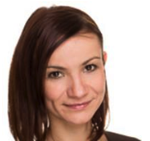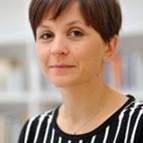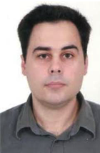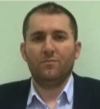75 minutes
The purpose of the tutorial is to enable participants to:
The aim of the tutorial is to introduce participants to a game-based learning approach using a card game which focuses on mobile learning and interactive blended learning. The aim of the card game is to familiarize tutors with different forms of these two types of learning. Also, the game can help tutors to rethink or to redesign their existing teaching activities and to integrate elements of mobile learning or interactive blended learning in them. This gameful approach could be used as part of tutor training in the context of school or university education.
All the materials needed are available online under open license and will be provided to the participants. Consequently, following up on this tutorial the participants who are interested in this game-based learning approach can download them locally, repurpose/adapt them to their needs (if needed) and use them in their own contexts. Initial efforts of the tutorial organisers concerning the game were presented at the 2019 Scholarship of Teaching and Learning (SoTL) Conference at the KTH Royal Institute of Technology, in Sweden. More recent efforts involve piloting the game with more university tutors at KTH. An extended abstract of this earlier effort in SoTL2019 is available online at https://intra.kth.se/polopoly_fs/1.890598.1553543699!/abstracts_AtillK_20190325.pdf
The topics involve:
The targeted audience of the game session is university tutors, school tutors or tutors’ trainers. No prerequisite knowledge is expected from the participants to follow this tutorial. The maximum number of participants is twenty-five.
All the materials needed are available online under open license (Creative Commons license) and will be provided to the participants. The participants will not need to carry with them in the tutorial any equipment.
 Anna Mavroudi is Associate professor at the Norwegian University of Science and Technology at the Department of Education and Lifelong Learning. She has been active in the field of TEL since 2007, working in different positions that involve diverse tasks e.g. supporting courses for teachers, conducting research, developing professional development. She received a certification on adult training and professional development by the Cyprus Human Resources Development Authority (in 2014) and completed a university pedagogy course at the Royal Institute of Technology (7,5 ECTS) in Sweden in Teaching and Learning in Higher Education. She has participated in numerous European-funded projects in TEL and authored more than 40 papers for international conferences and high-impact journals.
Anna Mavroudi is Associate professor at the Norwegian University of Science and Technology at the Department of Education and Lifelong Learning. She has been active in the field of TEL since 2007, working in different positions that involve diverse tasks e.g. supporting courses for teachers, conducting research, developing professional development. She received a certification on adult training and professional development by the Cyprus Human Resources Development Authority (in 2014) and completed a university pedagogy course at the Royal Institute of Technology (7,5 ECTS) in Sweden in Teaching and Learning in Higher Education. She has participated in numerous European-funded projects in TEL and authored more than 40 papers for international conferences and high-impact journals.
 Olga Viberg is Assistant professor in Media Technology with specialization in Technology-Enhanced Learning (TEL), Department of Media Technology and Interaction Design, Royal Institute of Technology in Sweden. Her research includes a focus on faculty pedagogical development in TEL, learning analytics in education, the application of mobile technology in education, the integration of formal and informal learning environments, design for learning, and a particular focus on students’ self-regulated learning in relation to their use of technology for learning purposed. Moreover, she is interested in how current emerging technologies are used in schools, both by teachers and pupils/students, nationally and internationally, and how we can support teachers as designers of technology-enhanced learning (TEL) in schools. Her work has been published in many referred journals and conferences.
Olga Viberg is Assistant professor in Media Technology with specialization in Technology-Enhanced Learning (TEL), Department of Media Technology and Interaction Design, Royal Institute of Technology in Sweden. Her research includes a focus on faculty pedagogical development in TEL, learning analytics in education, the application of mobile technology in education, the integration of formal and informal learning environments, design for learning, and a particular focus on students’ self-regulated learning in relation to their use of technology for learning purposed. Moreover, she is interested in how current emerging technologies are used in schools, both by teachers and pupils/students, nationally and internationally, and how we can support teachers as designers of technology-enhanced learning (TEL) in schools. Her work has been published in many referred journals and conferences.
2 hours
This workshop, co-located in IMCL 2019, aims to offer an opportunity for academic and industrial researchers to discuss on feasible solutions including evolutional technologies and ecosystems for the realization of 5G and beyond.
In the data-centric era 5G technology will be especially demanding in several end-user requirements, such as latency, very high traffic capacity, spectral efficiency, energy consumption, and massive machine-to-machine communication. This workshop aims at discussing the role of optical technologies and networking in 5G network architectures, deployments as well as trials and demonstrators from different perspectives, addressing aspects such as the role of optical technologies in 5G networks, spectrum extensions using new radio (NR) technologies, multi-interface access, orchestrated operations driven by network function virtualization (NFV) and software-defined networking (SDN), etc.
The topics involve:
Academic and industrial researchers interested in recent trends in 5G and beyond technology, challenges, deployments, and demonstrations. There is no limit on the number of participants.
All the materials needed are available online under open license (Creative Commons license) and will be provided to the participants. The participants will not need to carry with them in the tutorial any equipment.
 Thrasyvoulos Spyropoulos is an Associate Professor at EURECOM, France since October 2010. He holds a PhD degree from the University of Southern California (USC), Los Angeles, US. Before joining EURECOM he spent a year as a post-doctoral researcher at INRIA, Sophia-Antipolis, and 3 years as a Senior Researcher and Lecturer at ETH Zurich. His research interests include performance analysis for stochastic networks, content-centric networks, cellular system modelling and optimization, distributed optimization and machine learning, and social networks. He has co-authored more than 80 publications in international conferences and journals, receiving more than 10000 citations, has served in the TPC of top-tier conferences, such as ACM Mobihoc, ACM Sigmetrics, and IEEE Infocom, and has co-chaired the ACM CHANTS 2013 and IEEE NetSciCom 2014 workshops. He is also the co-recipient of the best paper awards at IEEE Secon 2008, IEEE WoWMoM 2012, and a best paper award runner-up for ACM Mobihoc 2011. Since 2017 he is an associate editor for IEEE/ACM Trans. on Networking.
Thrasyvoulos Spyropoulos is an Associate Professor at EURECOM, France since October 2010. He holds a PhD degree from the University of Southern California (USC), Los Angeles, US. Before joining EURECOM he spent a year as a post-doctoral researcher at INRIA, Sophia-Antipolis, and 3 years as a Senior Researcher and Lecturer at ETH Zurich. His research interests include performance analysis for stochastic networks, content-centric networks, cellular system modelling and optimization, distributed optimization and machine learning, and social networks. He has co-authored more than 80 publications in international conferences and journals, receiving more than 10000 citations, has served in the TPC of top-tier conferences, such as ACM Mobihoc, ACM Sigmetrics, and IEEE Infocom, and has co-chaired the ACM CHANTS 2013 and IEEE NetSciCom 2014 workshops. He is also the co-recipient of the best paper awards at IEEE Secon 2008, IEEE WoWMoM 2012, and a best paper award runner-up for ACM Mobihoc 2011. Since 2017 he is an associate editor for IEEE/ACM Trans. on Networking.
 Dr. Kostas Tsagkaris received his diploma and his Ph.D. degrees (Ericsson awarded) from the School of Electrical Engineering and Computer Science of the National Technical University of Athens. He is a co-founder and managing director of Incelligent, an SME specializing in the development of Big Data/AI software solutions for supporting telecom network/customer operations and a co-founder and managing director of WINGS ICT Solutions, an SME conducting research and development and offering solutions in the areas of 5G, IoT, Cloud & Big Data. Dr Tsagkaris has managed several R&D projects and is also lecturing (University of Piraeus) in the areas of design, management and optimization of 5G networks, cognitive and software defined networking and application of big-data and machine learning in telecommunication networks/management. He is a Senior member of IEEE and has published more than 170 papers in international journals and refereed conferences and also holds 3 patents in the areas above.
Dr. Kostas Tsagkaris received his diploma and his Ph.D. degrees (Ericsson awarded) from the School of Electrical Engineering and Computer Science of the National Technical University of Athens. He is a co-founder and managing director of Incelligent, an SME specializing in the development of Big Data/AI software solutions for supporting telecom network/customer operations and a co-founder and managing director of WINGS ICT Solutions, an SME conducting research and development and offering solutions in the areas of 5G, IoT, Cloud & Big Data. Dr Tsagkaris has managed several R&D projects and is also lecturing (University of Piraeus) in the areas of design, management and optimization of 5G networks, cognitive and software defined networking and application of big-data and machine learning in telecommunication networks/management. He is a Senior member of IEEE and has published more than 170 papers in international journals and refereed conferences and also holds 3 patents in the areas above.
 Markos Anastasopoulos is a researcher at the High-Performance Networks Group of the University of Bristol, UK. He holds a Diploma degree in Electrical and Computer Engineering, an MBA degree in financial engineering and a Dr. Eng. degree from the National Technical University of Athens (NTUA), Athens. Previously, he was research engineer at ICCS-NTUA (2004-2010) and senior researcher at the Network Design and Services Group of the Athens Information Technology (2010-2014). His main research interests lie in the areas of optical and wireless communications networks, mobile and distributed computing, network design and management. He is an author/co-author of more than 90 papers in peer reviewed international journal and conference proceeding. For his academic achievements he has awarded scholarships by the Kyprianides, Eugenides, Thomaides and Propondis foundations. He is also the recipient of the best doctoral dissertation award across all engineering schools of NTUA (2009) and the best paper award at the 17th IEEE/IFIP Optical Network Design and Modeling (ONDM) conference (2013). Dr. Anastasopoulos is a member of the IEEE and the Technical Chamber of Greece (TEE).
Markos Anastasopoulos is a researcher at the High-Performance Networks Group of the University of Bristol, UK. He holds a Diploma degree in Electrical and Computer Engineering, an MBA degree in financial engineering and a Dr. Eng. degree from the National Technical University of Athens (NTUA), Athens. Previously, he was research engineer at ICCS-NTUA (2004-2010) and senior researcher at the Network Design and Services Group of the Athens Information Technology (2010-2014). His main research interests lie in the areas of optical and wireless communications networks, mobile and distributed computing, network design and management. He is an author/co-author of more than 90 papers in peer reviewed international journal and conference proceeding. For his academic achievements he has awarded scholarships by the Kyprianides, Eugenides, Thomaides and Propondis foundations. He is also the recipient of the best doctoral dissertation award across all engineering schools of NTUA (2009) and the best paper award at the 17th IEEE/IFIP Optical Network Design and Modeling (ONDM) conference (2013). Dr. Anastasopoulos is a member of the IEEE and the Technical Chamber of Greece (TEE).
 Dr. Evangelos Pikasis was born in Athens, Greece. He received the B.S. degree in Electronics from department of Electronics, in Technological Educational Institute of Athens, the M.Sc. degree in Electronics and Signal Processing and the Ph.D. degree from the National and Kapodistrian University of Athens, in 2005, 2007, and 2014, respectively. His doctoral thesis was on advanced modulation schemes and digital signal processing techniques in order to overcome the limitations of multimode step index plastic optical fibers (SI-POF) to support data rates in the order of Gbps. Since 2008 until 2015 he serves as a researcher at the Optical Communications Laboratory, National and Kapodistrian University of Athens, participating in local and European projects. His area of expertise includes advanced modulation schemes, multimode step index plastic optical fibers, Analog Radio over Fiber, Digital Signal Processing, Electronics, DSPs and FPGAs, and cryptography at the physical layer. Since June 2017, he works as DSP and Telecom Engineer at EULAMBIA Advanced Technologies Ltd.
Dr. Evangelos Pikasis was born in Athens, Greece. He received the B.S. degree in Electronics from department of Electronics, in Technological Educational Institute of Athens, the M.Sc. degree in Electronics and Signal Processing and the Ph.D. degree from the National and Kapodistrian University of Athens, in 2005, 2007, and 2014, respectively. His doctoral thesis was on advanced modulation schemes and digital signal processing techniques in order to overcome the limitations of multimode step index plastic optical fibers (SI-POF) to support data rates in the order of Gbps. Since 2008 until 2015 he serves as a researcher at the Optical Communications Laboratory, National and Kapodistrian University of Athens, participating in local and European projects. His area of expertise includes advanced modulation schemes, multimode step index plastic optical fibers, Analog Radio over Fiber, Digital Signal Processing, Electronics, DSPs and FPGAs, and cryptography at the physical layer. Since June 2017, he works as DSP and Telecom Engineer at EULAMBIA Advanced Technologies Ltd.
 George Kalfas received his Ph.D. from the Universitat Politècnica de Catalunya in 2017. Currently he is a senior researcher at the WinPhos research group belonging to the Department of Informatics of the Aristotle University of Thessaloniki, Greece. He has authored over 40 publications on various research topics in the context of Fiber-Wireless resource allocation protocols.
George Kalfas received his Ph.D. from the Universitat Politècnica de Catalunya in 2017. Currently he is a senior researcher at the WinPhos research group belonging to the Department of Informatics of the Aristotle University of Thessaloniki, Greece. He has authored over 40 publications on various research topics in the context of Fiber-Wireless resource allocation protocols.
| 03 Jun 2019 | Submission of: (i) structured abstracts (for full papers, short papers, work-in-progress papers and posters) for the main conference (ii) Special Session proposals |
| 10 Jun 2019 | Notification of acceptance for abstracts for the main conference Special Sessions notification and announcement |
| 15 Jul 2019 | Submission of: (i) complete papers for all submission types (ii) Round Table Proposals (iii) Proposals for Organization of a Panel Discussion (iv) Proposals for Organization of a Workshop/Tutorial |
| 29 Jul 2019 | Notification of acceptance |
| 23 Aug 2019 | Late Paper submission deadline |
| 30 Aug 2019 | Notification of acceptance for Late Papers |
| 06 Sep 2019 | Author registration deadline |
| 13 Sep 2019 | Camera-ready due |
| 31 Oct 2019 | IMCL2019 Conference Opening |